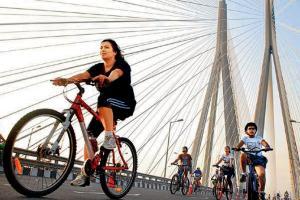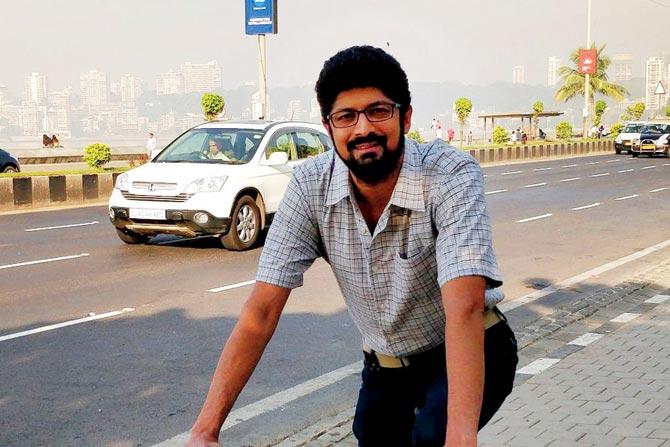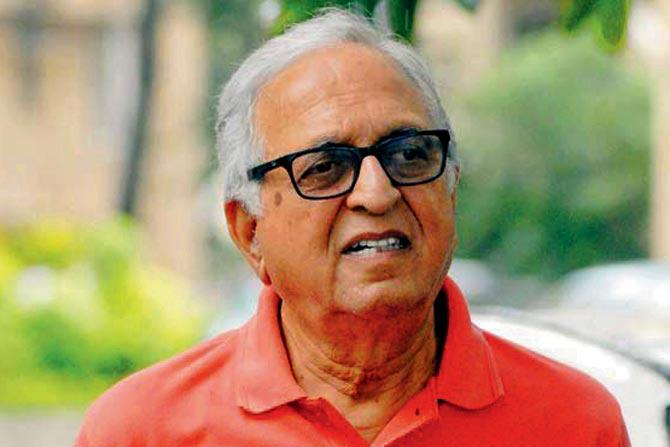A day after World Bicycle Day on June 3, urban cyclists and transport experts tell us how Mumbaikars can hit the pedal to maintain social distance

Cycles can be used to cover short distances
Last Sunday, when the Maharashtra government had announced Mission Begin Again to lift the lockdown in phases, the order stated, "People are actively encouraged to adopt cycling as a form of physical exercise as it automatically ensures social distancing." Even if we start stepping out again, the virus isn't going anywhere. And so, our means of commute — especially for essential purposes such as going to work — will have to accommodate the need of the hour: physical distancing. While following this norm on trains, Metro or buses might be a task, cycling is emerging as a plausible solution in Mumbai.
ADVERTISEMENT
Turn in attitude
There have been reports of a demand boost for cycles in countries such as the United Kingdom and Germany. In Mumbai, too, people have warmed up to the idea, especially in the past 50 days, feels Bicycle Mayor Firoza Suresh. "There has been a behavioural change during the lockdown. People have taken to cycling to run errands and have realised that it's not just environment-friendly and a great way to stay fit, but also takes care of social distancing," explains Suresh, who runs the Smart Commute Foundation. Both Suresh and Gautam Kirtane, an urban consultant who has biked to work for years, tell us that historically, Mumbai has been a cycling city, pointing to postmen, dabbawalas and now, delivery personnel. "Somehow, cars and bikes became the symbol of wealth over time, and we shifted to it," says Kirtane, reminiscing how around 20 years ago, children could rent cycles for R2 and pedal on them to neighbourhood maidans. Transport expert Ashok Datar says the time is ripe to shift to bicycles, especially for those dependent on public transport for short distances, as social distancing cannot be maintained in autorickshaws or trains.

Firoza Suresh
Suresh adds that it's an ideal way to take the pressure off public transport and better the air quality, which improved during the lockdown. "Nearly 20 per cent of trips in the city are for short distances [six to seven km], which is doable on cycles and yet people use motorised transport. If we are able to convert just this 20 per cent to cycles, it will be great."
Policy power
The shift to cycling has to be behavioural, social and policy-driven, suggests Kirtane. He shares that the government should encourage public bike-sharing systems. "These systems should run on a public model. The government can utilise corporate social responsibility funds to this end. You have to increase visibility of cyclists in the city; only then can policies be framed around them," he says, adding that cycling tracks have to be meaningfully created, keeping in mind the people who
will use them.

Gautam Kirtane
There should be positive enforcement and communication from the government to this end, says Suresh. "Firstly, we need to nurture those whose livelihood depends on cycling, such as dabbawalas. We need sheds and subsidies in terms of taking care of servicing for the first few years. Subsidies should also be given to cycle manufacturers so that bikes become affordable," she suggests, adding that the focus should be on increasing ridership and simultaneously building infrastructure by creating median cycle tracks and stands in offices and housing societies. "Unless there is a shed, why will someone cycle to the office? If there is no infrastructure, why would people cycle for non-leisure purposes?" She points out.
Much like the recently formed parking authority, the civic body can have a cycling and walking department, Suresh tells us. "Bicycle mayors can be appointed for every city ward, and they can look at logistical issues from that area and coordinate with the authorities. If not the whole city, the civic body can start with one ward on a pilot basis."

Ashok Datar
In the long run
"It's a bit unrealistic to expect people to bike over 10km," says Datar, adding that there's a solution that has been ignored — electric bicycles. "These cycles behave like regular bicycles and the only difference is they run on battery and hence, have an added power push. You go at a much higher speed with lesser effort. It takes four hours to charge them. They can be charged at home or offices or sheds with charging points," he explains. "Lots of short distances can be covered. Such cycles are common in other countries. The charging costs amount to 4 paise per km, which is lesser than what a bus ride will cost you," he says, adding it's ideal for the young and the old.
Gearing up
. Join this group if you're wondering what model to buy or need encouragement to hit the pedal.
Log on to Mumbai Cycling Enthusiasts on Facebook
. If you want to connect with fellow enthusiasts across the world and hear their stories, head here.
Log on to Bicycle world on Facebook
Catch up on all the latest Mumbai news, crime news, current affairs, and a complete guide from food to things to do and events across Mumbai. Also download the new mid-day Android and iOS apps to get latest updates.
Mid-Day is now on Telegram. Click here to join our channel (@middayinfomedialtd) and stay updated with the latest news
 Subscribe today by clicking the link and stay updated with the latest news!" Click here!
Subscribe today by clicking the link and stay updated with the latest news!" Click here!






